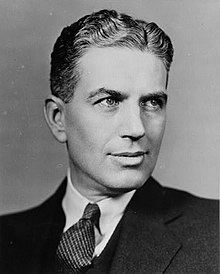Unemployment (January): 15.1%
Dow Jones Industrial Average: 179
Summary:
Rex Tugwell, once a member of the Roosevelt Administration left this job at the undersecretary of agriculture and abandoned his projects to become a worker of a private molasses company. Compared to how the government was during the middle of the depression, the economy was slowly recovering but never recovered back to the way it was during the 1920's, this proving how the New Deal was in some aspects ineffective. As a result of Roosevelt laying off workers in the NIRA and WPA, employees standing behind the Wagner Act began protesting, adding to the problem was the solution of their or not to raise wages to see if the government could get the economy back to the way it was in the late 1920's. Meanwhile, the fear of communists and the soviet union became a persistent problem, ever since Roosevelt recognized the the Soviet Union. Journalist Oddete Keun, traveling from Europe to study organizations like the TVA, caused Americans to notice the effects the New Deal on the businesses and realize the effects of the Wagner act of companies and businesses.
Key Terms:
New York Herald Tribune
McCarthy
Middletown in Transition
Keun
Casa Grande
Stalin and Communists
Questions:
How were workers able to use the Wagner Act to lead strikes?
What kind of power did it give them?
Pictures:

Rexford Tugwell, March 16 2015, http://en.wikipedia.org/wiki/Rexford_Tugwell
No comments:
Post a Comment